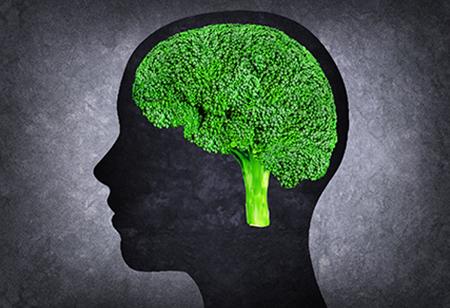Food may be the foundation for a healthy body, but can it affect your brain? Absolutely! In fact, diet is the number one risk factor for preventable disease and premature death worldwide. For that reason, Shad Marvasti, MD, the director of HonorHealth Integrative Medicine, says healthy eating ultimately boosts brain health.
"Food is medicine," says Dr. Marvasti. "This is not only true for our bodies but also impacts our moods and brain health. The key is to eat real foods and avoid processed foods or Frankenfoods as I like to call them. Processed foods are high in excess sugar and salt while being low in vital nutrients, including healthy fats, which are important for a healthy brain.”
Antioxidants
People often take supplements, particularly vitamins A, C and E, to help fill gaps in their nutrition, but there are potential dangers.
"Studies show that high doses of vitamins A and E can lead to an increased risk of cancer," shares Dr. Marvasti. "So, these antioxidants should primarily be obtained from nutrient-rich foods instead of taking supplements." Vitamin D is another popular supplement.
Vitamin D is another popular supplement. Deficiency in this vitamin has been linked with an increasing risk for dementia as well as poor outcomes with certain cancers, heart disease and depression.
“Studies show that 42% of Americans are vitamin D deficient so it is important to consider getting this tested and then supplementing to reach optimal levels,” adds Dr. Marvasti.
Physical and mental exercise
Dr. Marvasti cites exercise, in combination with a Mediterranean-style diet, as key components to improving or maintaining brain health. He recommends getting at least 30 minutes of aerobic exercise three days a week, along with strength training and mobility exercises.
Beyond exercising your body, you should frequently try new mental activities that stimulate and exercise your brain.
"You can't just do crossword puzzles every day,” says Dr. Marvasti “Try new things that challenge your mind. It's the newness of the activities that's important."
Eat smart, live well
Transform your health one bite at a time. By focusing on whole fruits, vibrant vegetables and balanced meals, you can reduce inflammation and lower your risk of chronic diseases.
Healthy eating made easy
Eating out can be a delightful part of your healthy journey. By focusing on high-quality ingredients, you can indulge in delicious dining experiences and without sacrificing your diet.
Your guide to healthy fats
Choosing healthy fats is essential for your overall health and well-being. Discover how to make smart food choices from our experts and empower yourself to lead a healthier life.

